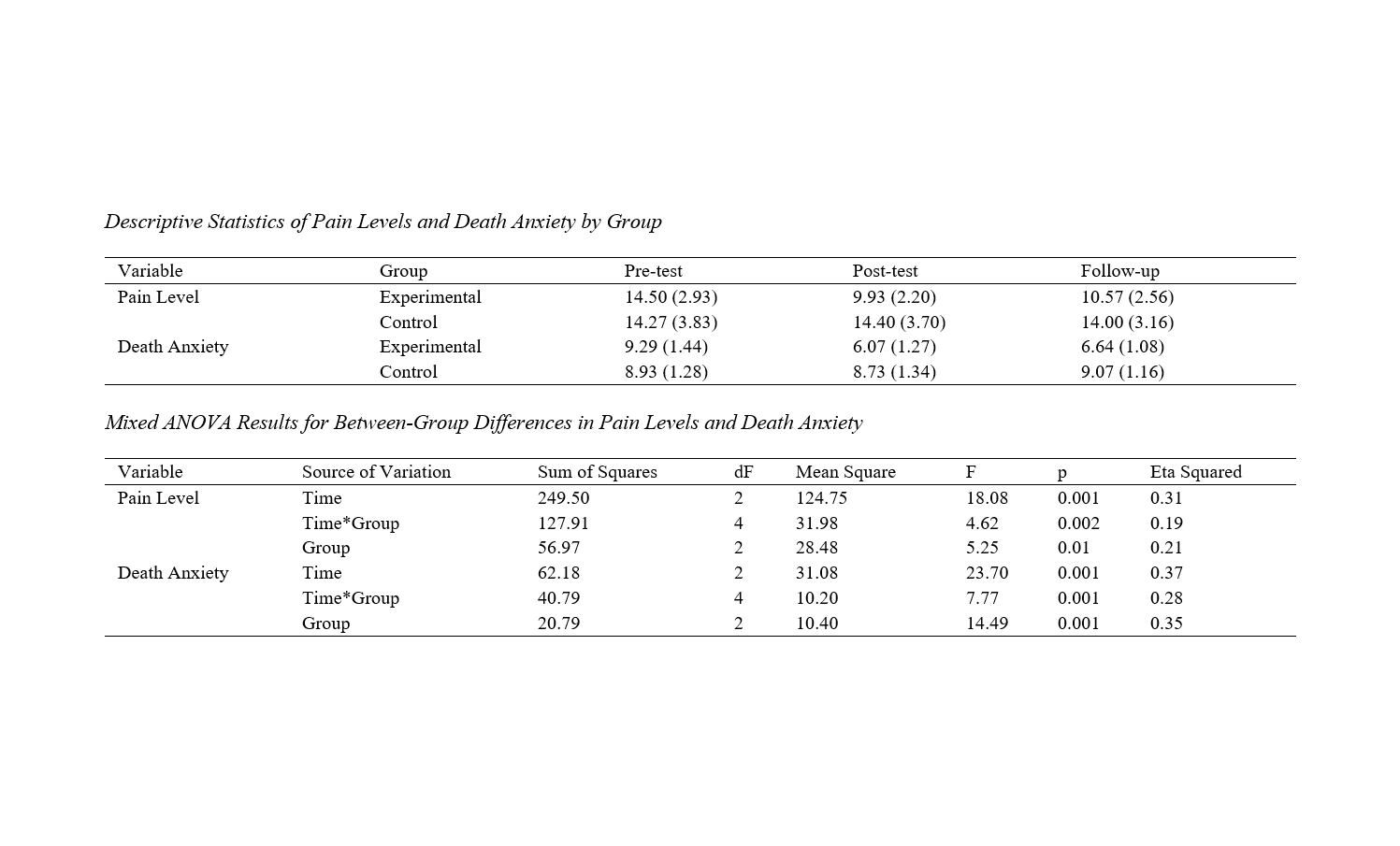The Effect of Meaning-Centered Pain Coping Skills Training on Pain and Death Anxiety in Breast Cancer Patients
Keywords:
Death anxiety, pain, breast cancer, coping skills, meaningAbstract
Objective: The present study aimed to determine the effect of meaning-centered pain coping skills training on pain and death anxiety in women with breast cancer.
Materials and Methods: This study was conducted within an experimental framework with a pre-test, post-test, control group, and follow-up design. The statistical population of the present study included breast cancer patients who referred to the oncology and radiotherapy department of Bazarganan Hospital and Roshana Radiotherapy and Oncology Center in Tehran during the second half of 2022. Using convenience sampling, 30 individuals were selected and randomly assigned to two intervention groups and one control group. The intervention content of meaning-centered pain coping skills was delivered in 4 group sessions. Findings were collected using the Templer Death Anxiety Scale (1970) and the Brief Pain Inventory (Cleeland & Ryan, 1994) during pre-test, post-test, and two-month follow-up stages. The obtained data were analyzed using mixed ANOVA and Bonferroni post hoc tests in SPSS version 27.
Findings: The results indicated that meaning-centered pain coping skills training had a significant effect on reducing pain and death anxiety in breast cancer patients at post-test and two-month follow-up stages (P < 0.001).
Conclusion: Overall, based on the findings of the present study, it can be stated that meaning-centered pain coping skills training is a promising and feasible approach for improving pain management and psychological functioning in breast cancer patients. Therefore, specialists, researchers, and therapists in this field can utilize these interventions as effective therapeutic options to enhance the psychological functioning of breast cancer patients alongside their medical treatments.
Downloads

Downloads
Additional Files
Published
Submitted
Revised
Accepted
Issue
Section
License
Copyright (c) 2024 Mina Ansari (Author); Ghodratollah Abbasi (Corresponding Author); Ramazan Hassanzadeh (Author)

This work is licensed under a Creative Commons Attribution-NonCommercial 4.0 International License.









